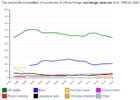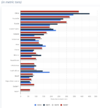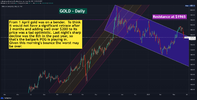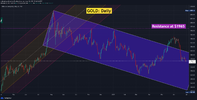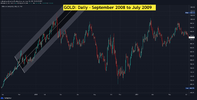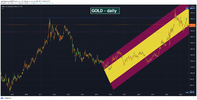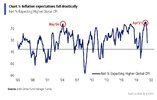- Joined
- 3 July 2009
- Posts
- 27,921
- Reactions
- 25,023
Yep, I'm just trying to stimulate thought and discussion.It's London to a brick that there will be a *digital* reserve currency. I don't think it will be a crypto in the true sense though. Gold will simply tie to that, whatever is.
A Gold standard? Well it makes sense to the Austrians. But usefull to whatever central bank has control of the reins?
Dunno.
In that situation will gold be valuable to we schlepps?
Again, dunno. But I doubt that would be useful to the central bankers... So my best guess is probably less so than now.
I realise that's pretty pessimistic, but the reptiles in charge of things don't fill me with a great deal of confidence that they have our best interests at heart.
The facts as I see them are, the U.S financial institutions trashed the U.S reserve currency status in the GFC, the CDO's left a lot of the rest of the World especially China, EU and U.K completely at their mercy.
The U.S devalued the currency to make their product cheaper, but left everyone else's currency high and dry, which made their exports less competitive.
Australia was lucky our banks were too small to play in the 'big pool'.
China from memory was caught with a lot of U.S bonds and well the EU ended up with the PIGS.
So it really did put the U.S as reserve currency in the spotlight, China started buying a lot of gold, possibly hoping to re ignite the gold standard.
Technology has moved along, China is completely pizzed with the U.S because of the power of their currency and everyone else is the meat in the sandwich.
So enter bitcoin a backyard shed crypto currency that can be traced to the enth degree, it isn't great, but the idea is.
Now we find China is developing its own crypto, the U.S reserve is developing its own crypto, Austrac has gone onto steroids chasing lax money tracking.
To me it makes perfect sense, joining the dots that they are trying to get the institutions up to speed with tracking ability, is it to follow money laundering or is it ticking a check list?
Just my musing, over a nice hot salami and cheese biscuit, with a Taylors red. ? You don't have to be rich to enjoy the finer things in life.


